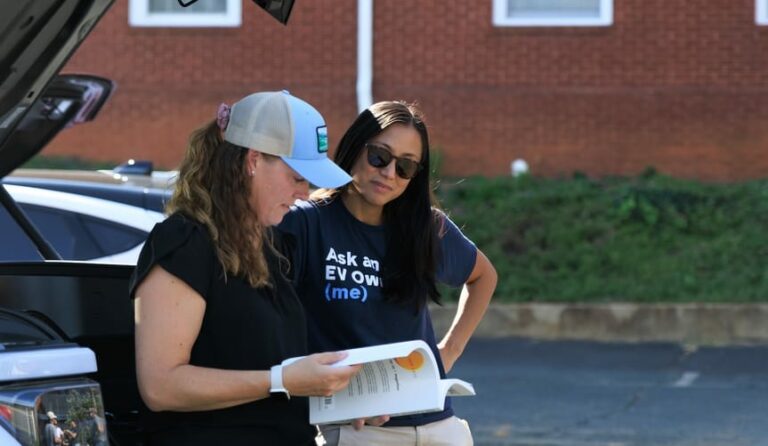A Campaign to Empower Women in Electric Vehicles
Women make up less than 30% of electric vehicle (EV) owners, but a Virginia-based nonprofit is working to change that. Generation180 has launched the ‘I’ll Drive What She’s Driving’ campaign to boost EV adoption among women. The initiative has recruited around 7,000 ‘EV ambassadors’ nationwide to share their experiences with electric vehicles.

Brooke Canova, a health and physical education teacher from Charlottesville, Virginia, is one such ambassador. Initially hesitant about driving her husband’s Ford F-150 Lightning due to its size, Canova discovered that the vehicle’s advanced features, such as self-parking and cameras, made it manageable. The truck’s 320-mile range on a single charge and the ability to charge it at home using solar panels also won her over.
The Power of Personal Stories
Canova’s experience is a testament to the campaign’s approach. By sharing personal stories and experiences, these ambassadors aim to inspire other women to consider electric vehicles. The campaign focuses on the suburbs, where many new-car buyers live and where EVs are ideal for short trips.
The nonprofit’s research found that women are motivated to drive electric for environmental reasons and cost savings. However, they often lack information about EVs. Generation180 addresses this by connecting women with trusted sources – the EV ambassadors.

Terri Watts, another EV ambassador from Bostic, North Carolina, uses a Rivian for her high-end chauffeur service. She appreciates the vehicle’s performance, style, and lower operating costs. Watts has seen firsthand how EVs can appeal to clients committed to a low-carbon lifestyle.

Overcoming Barriers to Adoption
Despite the benefits, challenges remain. Long road trips still require more planning for EVs, and the initial cost, although decreasing, can be a barrier. Advocates stress the importance of preserving incentives like tax credits and investing in charging infrastructure, especially in rural areas.
The ‘I’ll Drive What She’s Driving’ campaign underscores the value of trusted messengers in promoting clean energy adoption. As policy landscapes shift, personal stories and community engagement become increasingly crucial in driving the transition to electric vehicles.
By highlighting the experiences of women like Canova and Watts, Generation180 aims to make EVs more accessible and appealing to a broader audience. As the EV landscape continues to evolve, initiatives like this campaign will play a vital role in shaping a more sustainable transportation future.



